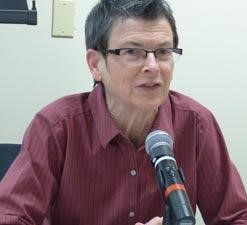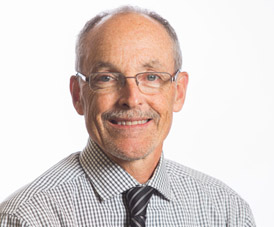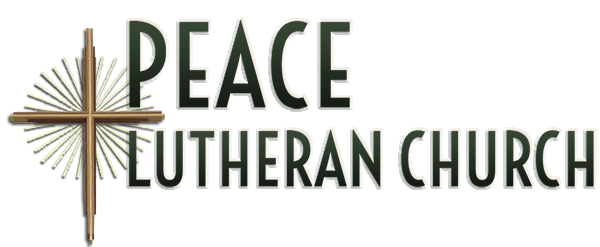Ethical, medical, legal issues at seminar for New Law
People facing terminal illness have a new choice – the possibility to end their own lives legally and humanely – under California’s End of Life Option Law that went into effect in June.
Doctors, lawyers, patients and people of faith are working to understand what could become a new social norm around dying and death, experts said.
Our technology leaves us “twisting in the wind” when it comes to end-of-life issues, ethicist Dr. Margaret McLean says.
Legal, medical and ethical leaders will discuss the End of Life Option Law during a free public seminar, “To Be or Not to Be,” at 10:30 a.m. Saturday, July 30, at Lincoln United Methodist Church, 629 I St., Lincoln.
A question-and-answer period follows the presentations. For more information, call (916) 645-9655.
“To Be or Not to Be” is organized by the Rev. Judith Morgado of Grace Lutheran Church, Lincoln.
“Issues surrounding life and death are not always clear-cut. We live in the gray where decisions are often difficult and gut-wrenching,” Morgado wrote when asked why she wanted to put on this seminar. “As pastor, I am called to offer a safe place where people can explore and discern tough questions that keep them awake at night.”
This event is funded by the Lutheran Development Society of Sacramento, Thrivent Financial and the Beulah Foundation of United Methodist Women.
New ethical choices

Dr. Margaret McLean is a bioethicist at the Markkula Center for Applied Ethics, Santa Clara University. She will speak at the seminar, “To Be or Not to Be.”
Technological advances in medicine create new hope for extending life. But when the suffering of a terminal illness makes life unbearable, our technology leaves us “twisting in the wind,” said bioethicist Margaret McLean, associate director of the Markkula Center for Applied Ethics at Santa Clara University.
Patient autonomy to end suffering motivated the End of Life Option Law, McClean added. She will discuss the ethical struggles surrounding the law during “To Be or Not to Be” July 30 in Lincoln.
People make choices about medical care their entire lives, according to those who advocated the new law.
“I should be able to make decisions about when and how I die. It’s a logical extension of my decision-making authority. It’s arguably the most important medical decision I will ever make,” McLean summed up that argument
New Legal niche
Legal aspects surrounding the End of Life Option Law, and its extensive requirements, will be discussed by Newcastle attorney Paul Comiskey. He has been an advocate for prison and juvenile justice reform.
Law regarding the end of life is inconsistent, Comiskey observed. California law generally limits personal autonomy in cases when a person endangers oneself or others. This new law “carves out a new niche” by allowing terminally ill people to obtain a drug they can give themselves to bring death, he said.
The law requires a patient to ask a doctor twice over two weeks for a prescription for a life-ending drug, then ask a third time in writing. All three requests are made directly to the doctor. A second doctor must review the patient’s record.
These requirements, Comiskey said, “imply that the doctor have face-to-face, personal contact to judge, not only the content of the words, but, is this person depressed? Or under duress from friends and family?”
Doctors “struggle” between demands

Dr. Michael Mulligan is a physician at Chapa-De Indian Health clinic in Auburn. He will speak at the seminar, “To Be or Not to Be.”
Doctors and hospitals have both new choices and new obligations under the law. Dr. Michael Mulligan, of Chapa-De Indian Health clinic in Auburn, will discuss this new medical landscape. He called it “possibly changing a social norm around death and dying.”
“Individual physicians struggle between two seemingly conflicting demands: to do no harm and to relieve suffering,” Mulligan wrote. At first, organized medicine opposed the law, but now largely has taken a neutral stance.
“Large health systems now are figuring out how to provide patients access to this option, but at the same time not forcing their physicians to do so,” Mulligan added.
Sutter Health has embraced the new law. A page on the group’s website explains in detail how a terminally ill patient can obtain a life-ending drug. (The corporation owns hospitals and medical groups in the greater Sacramento area and throughout northern California. Facilities include Sutter Faith in Auburn and Sutter Roseville Medical Center.)
Ethical questions surrounding death under this law should encourage institutions to “provide a robust palliative care program,” McLean said.
Oregon passed the first “Death with Dignity” law in 1997. There, patients who receive an aid-in-dying drug report reduced stress and greater peace with their dying process, Comiskey said. That was the experience reported by Brittany Maynard, a 29-year-old Californian whose experience with Oregon’s law prompted California’s legislation in 2015.
PROVISIONS of the End of Life Option Law
“To Be or Not to Be”
What: Seminar on California’s new End of Life Option Law
Who: Featuring ethicist Dr. Margaret McLean, director of bioethics for the Markkula Center for Applied Ethics, Santa Clara University
When: 10:30 a.m. Saturday, July 30
Where: Lincoln United Methodist Church, 629 I St., Lincoln
Cost: Free
More info: (916) 645-9655
Presented by: Grace Lutheran Church, Lutheran Development Society of Sacramento, Thrivent Financial & United Methodist Women
- Allows a doctor to prescribe an “aid-in-dying drug” to a patient with a terminal illness (expected to die within 6 months).
- Patient must be mentally competent and able to administer the drug personally; no one is authorized to administer the drug on a patient’s behalf.
- Patient must ask verbally twice (2 weeks apart) and in writing once, each time directly to the doctor. Act includes a written form for patient request.
- Checklist for doctors; includes review of medical records and documenting informed consent.
- A second doctor must review the patient’s case, see the patient and give an opinion.
- Requirements for informed consent: Witnesses must affirm the patient’s wishes; witnesses are restricted in how they are related to patient or would benefit from patient’s death.
- Death achieved under the actions covered by the law is not considered suicide.
- Health care providers and institutions may not be forced to prescribe aid-in-dying drug; they may prohibit their doctors and contractors from prescribing; they may NOT punish a doctor or contractor for referring patients to another doctor who can prescribe.
- Doctors and institutions that do prescribe aid-in-dying drugs are protected from lawsuits alleging negligence and elder abuse, etc.
- Insurance companies may not offer information about drugs and drug prices unless requested by patient; no insurance policy may be conditioned on agreement to take aid-in-dying drugs; a letter regarding the denial of medical treatment may not include information about availability of these drugs.
- Provisions for disposal of drug not used or left over.
- Forgery, coercion, etc., are felonies.
- Statistics would be collected, but patient privacy protected.
Learn more
Click here to read the End of Life Option Law
Click here to learn how PEACE Lutheran Church reaches out to our community.

